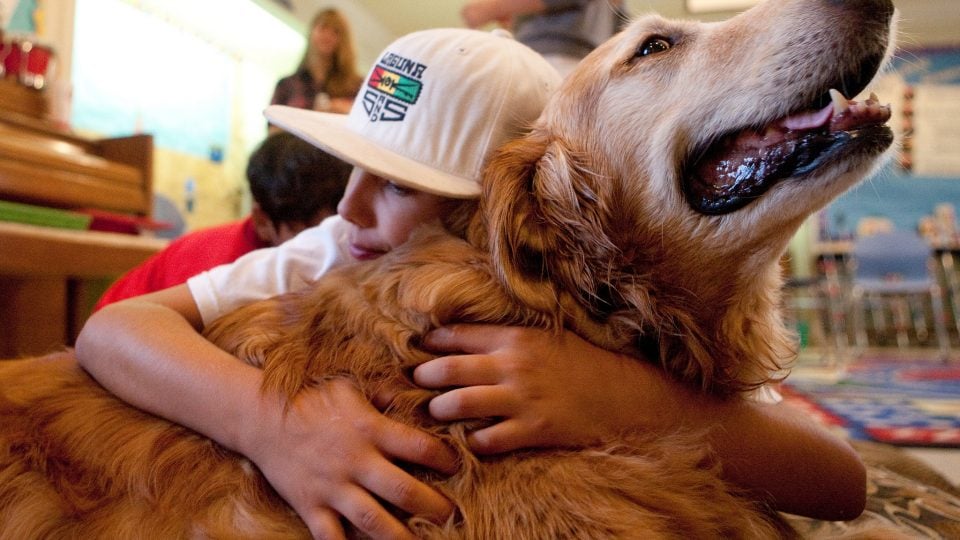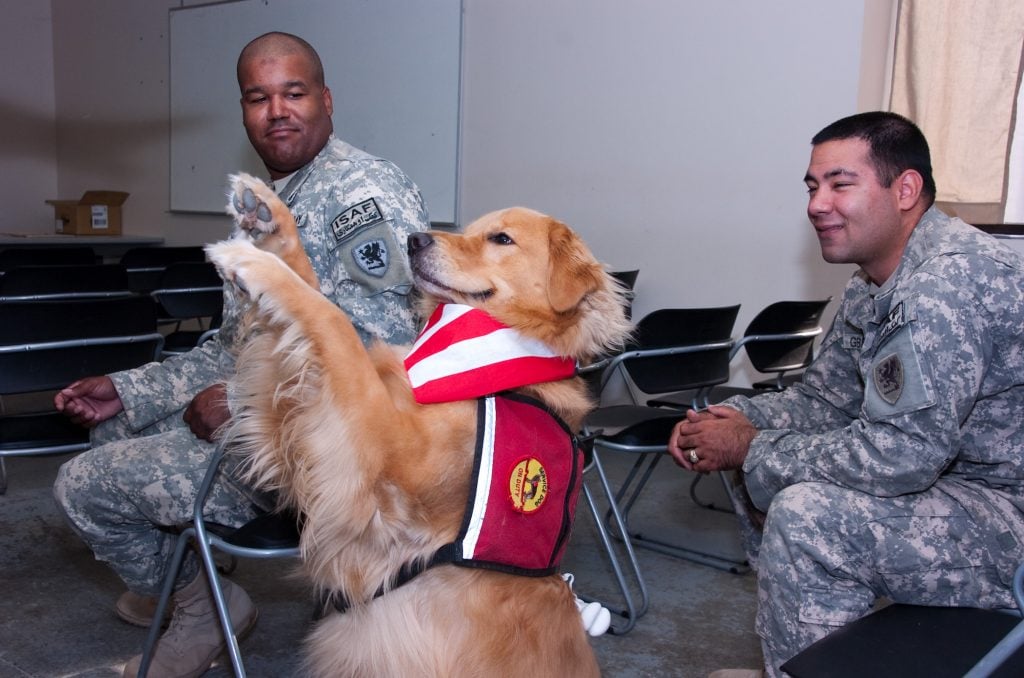Earlier this month, as the world recognized the 13th anniversary of the World Trade Center attacks, we learned about Bretagne, the last surviving search dog from Ground Zero.
Bretagne was trained as a search and rescue dog, but according to her handler Denise Corliss, she also provided emotional relief to human aid workers at Ground Zero. In an interview with Tom Brokaw, Corliss said, “Searchers and some rescuers would come by to pet her and to thank her and tell us their stories… [she took on] the unexpected role of a therapy dog.”
As Bretagne demonstrated, dogs have an innate ability to comfort humans, relieve our stress, and make us smile. Think of how your dog rushes to be by your side when you cry out in pain, or the gentle nudge she gives you after a tough day at work. In times of crisis or disaster, a trained relief dog does the same thing, but on a much broader scale.
4 Incredible Facts About Disaster Relief Dogs
Dogs have been used in search and rescue for at least two hundred years, and as therapeutic companions in health and home settings for decades, but their use as emotional support following disasters is relatively new.
Disaster relief dogs, also called crisis response dogs, gained recognition after the events of September 11, 2001, when they played an important role in helping survivors heal. In recent years, disaster relief dogs have comforted victims of shootings, mudslides, and hurricanes. These special dogs and their human handlers alleviate trauma and help people heal.
What exactly is a disaster relief dog?
Emotional first aid
The role of a disaster relief dog is to provide emergency intervention in times of acute psychological crisis. You can think of them as “emotional first aid.”
If a person has experienced trauma, a disaster relief dog acts as a much-needed salve to soothe wounds that medicine can’t reach, straddling the divide between traditional therapy dogs and task-oriented service dogs.
We’ve all heard that sharing affection with an animal can lower blood pressure, reduce stress, and help people express feelings. Crisis response dogs are specially trained to do all that in especially fraught situations, to provide comfort and relief to humans experiencing trauma, and to help normalize unimaginable situations.
How are these service dogs different from my pet?
Extensively trained, obedient, and emotionally available
Your dog relieves your stress, but how would she fare in a room full of strangers who have just lost homes and loved ones to a natural disaster? Relief dogs must be obedient as well as emotionally tuned-in, and remain calm in unpredictable environments.
A good candidate for disaster relief will be steady and reliable, and not too sensitive to unexpected noises like machinery and sirens. They also have to be comfortable (and comforting) with people they’ve just met.
As one relief dog handler noted in an interview with Mashable.com, dogs “either have it or they don’t.” And dogs who have “it” need to go through extensive training before they can be put to work.
What breeds make the best disaster dogs?
A skill accessible to all dog breeds
Disaster relief dogs differ from other types of service dogs in that breed standards matter far less than the individual temperament of each dog. Of course, the usual suspects are present: Labs, golden retrievers, and German shepherds are as popular in disaster relief therapy as they are in guide dog and hearing dog programs.
However, dogs of all shapes and sizes, from Jack Russell terriers to Bernese mountain dogs, can make excellent therapy dogs so long as they are calm, friendly, well-behaved, and consistent.
How can I become a disaster relief dog handler?
Your dog could bring relief to those in need
If you like the idea of training dogs to help people, you can learn more by contacting organizations that partner with government agencies to match therapy dogs with communities in need.
Three nationally-recognized organizations are Therapy Dogs International, HOPE Animal-Assisted Crisis Response, and K-9 Disaster Relief, all of which offer training resources. If you think your own dog is a good candidate for disaster relief, you can get a head start by enrolling her in a Canine Good Citizen certification class, an important first step in the process of becoming a therapy dog. Remember, not every dog is suited to disaster relief, but CGC training is a great place to start.
If it turns out you and your dog are not quite up for the emotionally and physically taxing demands of disaster relief, consider pursuing therapy work with a local school, rest home, or hospital to bring some doggy comfort to the lives of people in need.
For people dealing with any kind of hardship, a kind dog at their side can be an incredible help. As one handler wrote after visiting Sandy Hook Elementary School with her therapy dog, “There are no words to describe the emotion you feel when you see a dog stoically press his own body up against a student or teacher’s body and lay his head on their shoulder as if to say, ‘It’s OK now, I’m here for you.’”
Top image via Flickr/UCI UC Irvine



